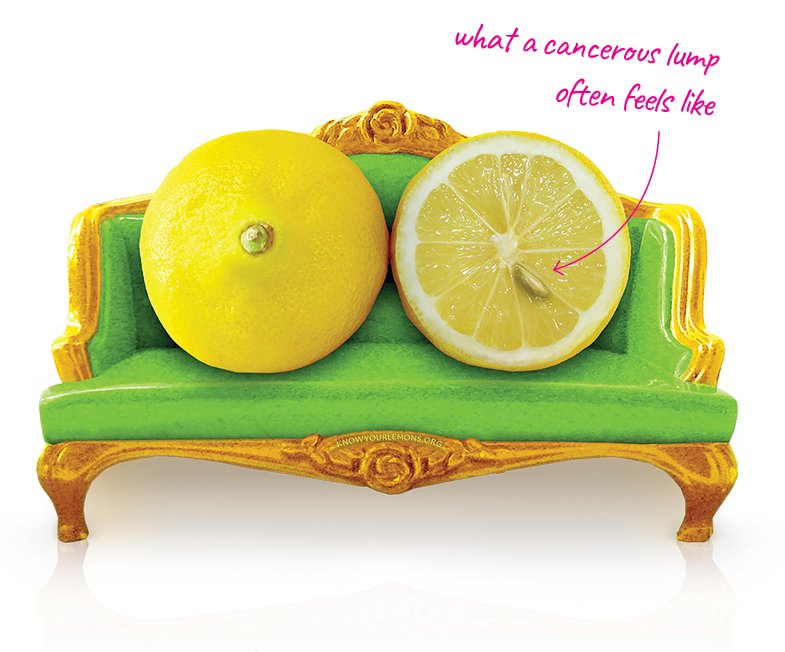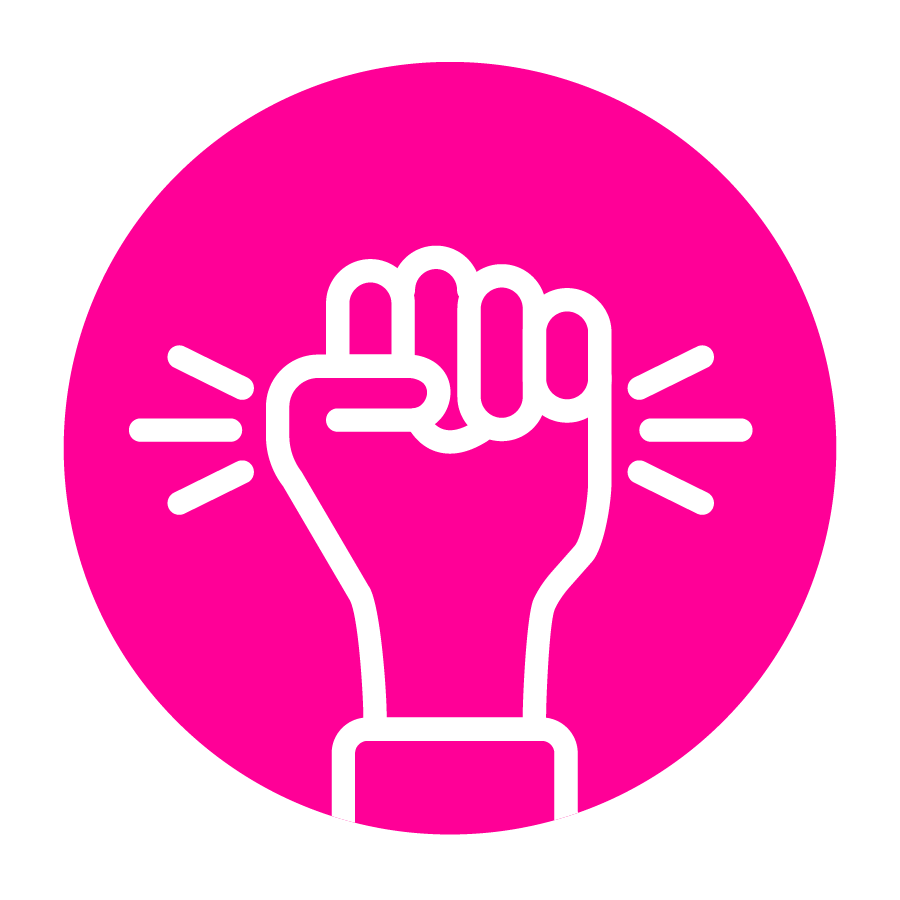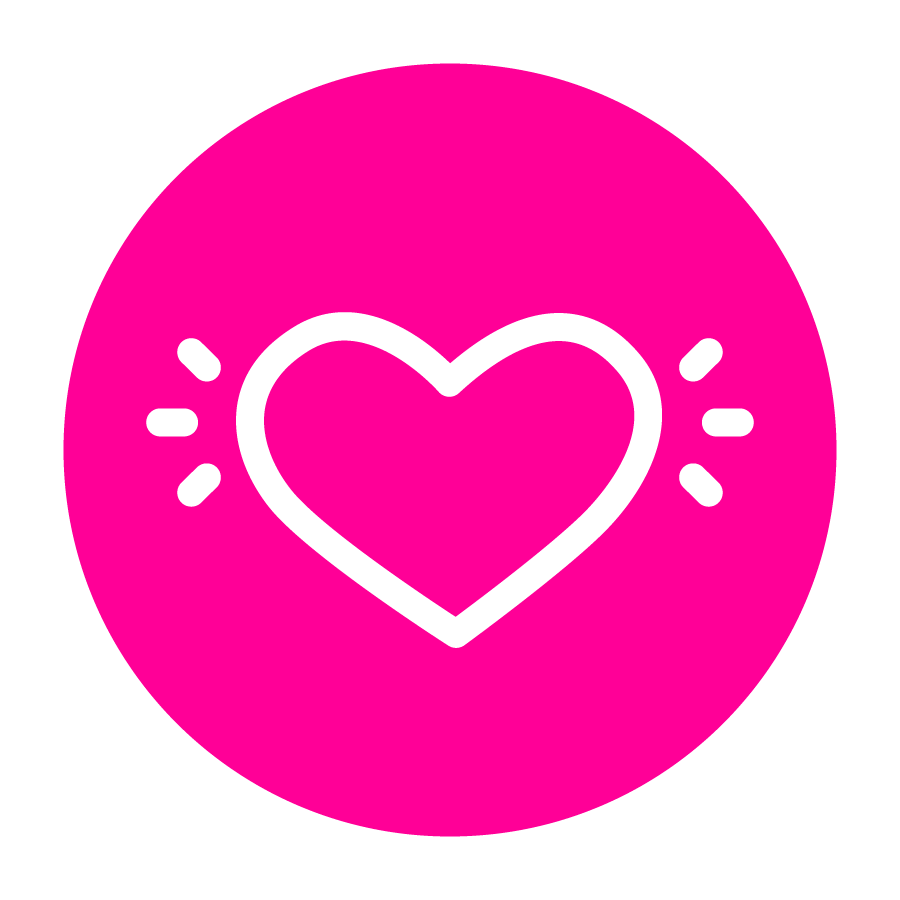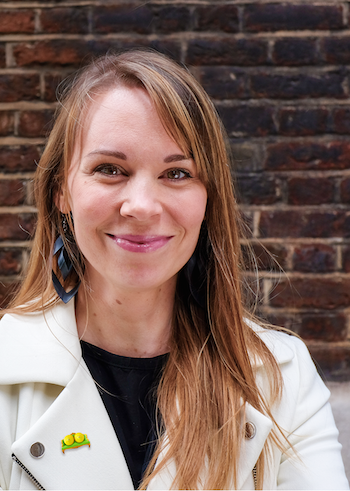Who is the Know Your
Lemons Foundation?
EMPOWERING PEOPLE
By being informed and feeling confident in how to advocate for their health, people can be truly empowered in life-saving ways.
EQUITABLE DESIGN
Our creative and inclusive visual approach means that we are the only breast cancer awareness campaign that overcomes literacy issues and includes all demographics to address global gender and health inequities.
GLOBAL VISIBILITY
Using 12 lemons instead of breasts means the campaign has a global reach, overcoming cultural taboos around breasts. With a single campaign sponsorship, you can reach multiple markets simultaneously, broadening your reach and brand recognition.
MAKING AN IMPACT
Breast cancer patients who saw our campaign had a 39% lower rate of Stage 4 breast cancers,* compared to patients who did not. 94% said after seeing our work, they felt more confident about their breast health.
OPENING DISCUSSIONS
Introducing the conversation in a fun and inviting way removes fear from the topic and creates discussion.
The story behind Know Your Lemons
Our charity began after our founder lost her grandmothers and a close friend to breast cancer. She sought out information to learn more about the disease and realized something strange:
There wasn’t a single resource that communicated all the symptoms, how to self-exam, and how to determine when to get screened. So she got a PhD, and used her savings to start what is today the only global breast cancer charity dedicated to education for early detection.
Using her design skills she researched, tested, and developed the most popular global education program in history that overcomes fear, taboo, and literacy issues. It’s incredibly inclusive, working with any age, race, ethnicity or gender.
Since 2017 we have:
educated 1.5 billion people online
educated over 50,000 people in-person through trained volunteer educators
designed the campaign in over 30 languages
created an award-winning app designed to improve early detection (and it has!)
trained over 500 volunteer educators in over 50 countries
saved a lot of lives around the world through empowering and creative education.
Our Founder’s Story
“My grandmothers Lila Beth and Sandra died from breast cancer at the ages of 40 and 62. Despite this being the cause of heartache for both sides of my family, we didn’t really talk about breast health. Very few of us do—it’s just not a subject we are taught in school or seek out as a topic in general.
After my second grandmother died, I went to a cancer library. I wanted to know what I should be doing to protect myself against breast cancer, and get answers to what I thought were some pretty basic questions:
“What do I look for? What am I feeling for in a self-exam? When should I get a mammogram? Am I at a higher risk?”
I was given a lot of leaflets, referred to many websites and I looked at several books. But not one of them had all the answers in a simple, easy-to-understand format. As a designer, I could change this. There wasn’t an easy way to visualize the conversation that got past censorship, fear, and literacy issues. I wanted to make this information accessible and desirable for as many women as possible.
So I went to work. I photographed objects that would be used as a stand-in for breasts. Jugs. Cones. Melons. One day, I stumbled upon a lemon, and it all came together perfectly: it had a nipple, the interior looked like breast anatomy, and a lemon seed represented a cancerous lump. It felt like magic.
So I researched. I talked to doctors and nurses, and put myself in the shoes of the patient, even trying out a mammogram. This is how I designed the “12 Signs of Breast Cancer” image and the “Breast Anatomy” poster. I exhibited this work as part of my Masters degree in Fine Art and graduated. But my work still felt unfinished.
So I quit my job and this 26 year-old farm girl from Idaho moved to London to get a PhD in Design. This gave me the opportunity to really dedicate myself to improving, testing and developing a global campaign. The work was challenging and exciting.
But things really hit home when I got a call from my close childhood friend Suzanne. She had been diagnosed with Metastatic (Stage IV) Breast Cancer at age 28. Suzanne’s symptoms were redness, a thick mass (“tight skin”), an inverted nipple, and a child refusing to breastfeed on that side. It was a lesser known form of the disease known as Inflammatory Breast Cancer (IBC). These were all symptoms on my poster, but most of the health professionals she interacted with dismissed several of these symptoms because she was "too young". If it wasn't for an experienced nurse pushing her to get a second opinion, she may have never known. That nurse bought her 7 more years of life and more children.
Suzanne’s experience really pushed me to get the message out to more people that breast cancer is more than a lump.
I continued to fund my “side-project” with my savings, and was an Associate Professor at a London university for several years. After Suzanne’s funeral, it was too much for me to bear any longer. So I again found myself leaving my job, and decided to start the charity and work on it full-time—as a newly single mom—all on a leap of faith and my savings.
A few months later, the campaign went viral and I found myself sitting on the BBC Breakfast sofa sharing the work with an entire country. I was interviewed by CNN. The work was featured in most every news outlet. And things have grown ever since. Our educational materials are now available in over 30 languages. They are being used in over 90 countries. We have a training program for volunteer educators. People have reached out saying that these lemons helped them to get diagnosed in a way they wouldn't have otherwise. It is truly incredible and humbling to be part of this effort. I have met so many passionate and wonderful people. My wish is to make it easy for everyone to change the picture of breast cancer with me, and save the lives of our grandmothers, mothers, sisters and friends along the way.”
FOUNDER PRESS SUMMARY
Corrine’s grandmothers and a close friend lost their lives to the disease, which is why she is driven to take action to help save the lives of others. What began as a personal journey to understand her own risk and how to be proactive about her breast health, turned into a global effort. Using her expertise as a designer to study the psychological effects of healthcare communication, she developed a new approach that was equitable and capable of reaching the world. After receiving her PhD in design (Design thinking in healthcare: developing patient-centred communication materials for breast cancer detection), she left her job as a business professor and created the Know Your Lemons® Foundation with $7,000 of her own savings.
A year later, her work went viral on social media and appeared in most major news outlets around the world. Women from around the world have attributed their early diagnosis to her work, saying it made all the difference in saving their life.
Corrine has been featured on CNN, BBC News, ITV, various radio stations and numerous publications in the health, beauty, medical and design fields. She is an advisor for the World Health Organization’s Global Breast Cancer Initiative, a member of the World Cancer Day campaign committee, and frequently presents at global conferences, such as the United Nations Conference and the World Cancer Congress discussing equitable ways to empower patients, particularly women, to better navigate breast health.
She lives in Salt Lake City, Utah, USA with her daughter and dog Daisy. She’s a dual citizen of the USA and UK.
About our Founder, Dr. Corrine Ellsworth-Beaumont MFA, PhD
Developed the campaign after losing her grandmothers and a close friend to breast cancer.
Moved from the USA to London to study communication design for breast cancer and received a PhD in Design Thinking for Healthcare from Brunel University as part of developing the campaign.
After a close friend died in 2014, she started the charity (formerly known as Worldwide Breast Cancer) and, a year later, left her job as a university lecturer in design and entrepreneurship to run the charity full-time with her savings, and as a newly single mother.
Campaign went viral in 2017, where she appeared on the BBC, CNN, and other media outlets.
Current member of the WHO Global Breast Cancer Initiative (GBCI) Health Education Working Group (WG1)
Presenter at the World Cancer Congress in 2018
Spoke on the topic of Design Thinking for NGOs at the United Nations Conference in 2019
Named by GoodEra in the Top 9 Women Leading Diversity and Inclusion the US







